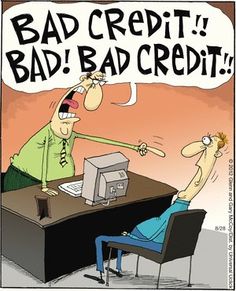5 Different Types of Loan to Know About
 There are many different types of loan out there. So, if you’re thinking about borrowing money, here are the forms of loan you should know about.
There are many different types of loan out there. So, if you’re thinking about borrowing money, here are the forms of loan you should know about.
1. Credit
Lines of credit allow you to borrow money up a maximum allowable balance. This limit starts again at the beginning of each month so that you can keep borrowing and paying off the debt continually. Obviously, there are minimums and interest to take into consideration. They work in a similar way to credit cards, and they are another thing you can consider. Credit is quite cheap right now, so many people are turning to it rather than taking out a loan that is a little more long-term. It’s a sensible move.
2. Business Loans
Small loans for entrepreneurs help them to get their first foot on the ladder in the world of business. This is the kind of financial boost that people really need when they are trying to start a business of their own. And can be pretty much impossible to do this unless you have the money to start out in the first place. Building a business on debt is never the ideal scenario, but for many people, it’s the only option out there. If you can get one that only covers your needs and has a good interest rate, they can be very useful.
3. Personal Loans
A personal loan is the most common and conventional form of loan out there. They can be used to make improvements to the house, buy a new car or do whatever you want to do. These are usually done by visiting your local bank and discussing things with them. The bank manager will want to know about what kind of thing you will use the money for. And your credit history will obviously be taken into consideration before a loan is given to you. It’s a safe way to borrow relatively small amounts of money.
4. Payday Loans
Payday loans have gotten a pretty bad reputation over the years. And some of that is justified. If people don’t read the small print and the facts are not presented to them clearly, they can get in a big mess. But that doesn’t mean that they have no use at all. They should be used very responsibly by lenders and borrowers alike. And if that’s the case, they can be great ways to make short-term payments while you are waiting for your pay to arrive. And as soon as it does arrive, pay back that debt. Go to www.ferratum.com.au to find out more.
5. Mortgages
Buying a home is one of the biggest steps most of us ever take in life. There are not many bigger purchases that any of us will make in our lives than this one. A mortgage covers the cost of buying your home for people, like most of us, who can’t afford to buy their home outright. The mortgage is long-term, and it is paid back over the course of decades in most cases. They are secure loans, meaning that the collateral is the home that you are living in. If you can’t make repayments, it can be repossessed. Visit www.moneyadviceservice.org.uk to find out more.
















